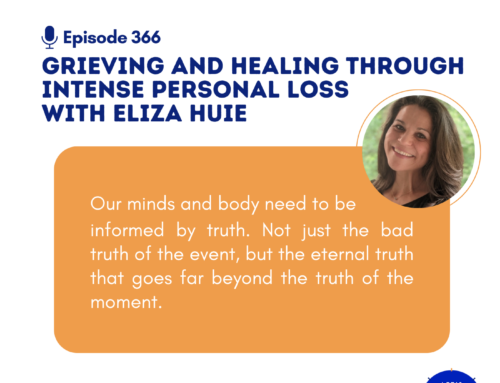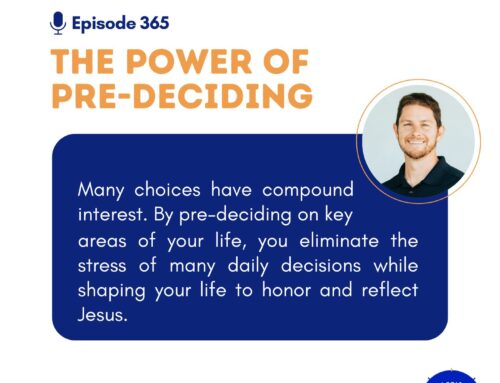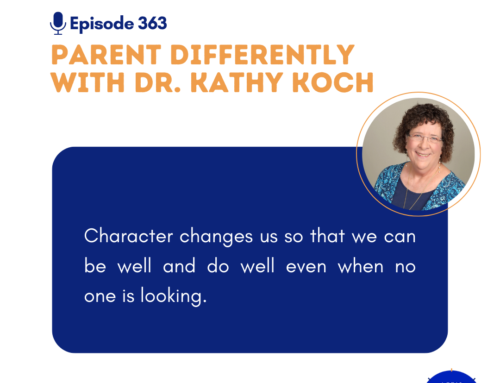We’ve all been there. Life gets to be so overwhelming that we start using words like “stress” and “anxiety” to describe the way it makes us feel. What can be done about it? How do we unpack, rearrange, or maybe eliminate the heavy boxes in our lives? My friend and Christian Counselor, Brian Neal, joins me again today to share wisdom on the matter. A father of six, husband of 28 years, and Marriage and Family counselor, Brian provides a few strategies for tackling these stacks. (Click here to listen to Brian’s previous interview in episode 122, “How Can We Benefit from Counseling.”)
Show Highlights
- Who is my returning guest, Brian Neal?
- Brian is a Christian Marriage and Family counselor in West Palm Beach, Florida.
- Brian has an office in Palm Beach Gardens, and also provides online counseling to Florida residents via True Course Counseling.
- What is one of the most common areas of need for Christian counseling?
- Emotional stress and feelings of being overwhelmed.
- Teens, parents, families all have more and more piled on their plates these days.
- The Anxiety and Depression Association of America says, “Anxiety disorders are the most common mental illness in the U.S. affecting 40 million adults in the United States age 18 and older.”
- This is over 18% of the population.
- Is the term “mental illness” always appropriate? Isn’t anxiety something that can be chemical/genetic or circumstantial? How are they differentiated?
- Anxiety and stress can be viewed on a spectrum. For some, there is a chemical origin, and for others, it may be circumstantial.
- If panic attacks keep a person from functioning, you may be crossing into the anxiety disorder part of the spectrum (mental illness).
- Differentiating is often attempted by looking at an individual’s beliefs of themselves, their environment, and their past.
- Was there a traumatic event? A broken relationship? Etc.
- The stressors in our lives can be likened to 20lb boxes. Each box contains a different area of stress.
- If a person is figuratively carrying multiple 20lb boxes, and then given an additional one while being expected to carry out their day-to-day tasks, they’d feel overwhelmed. The pressure would mount, and stress and anxiety would begin to take over.
- The first strategy for managing stress and anxiety is to identify what your boxes are and what is making them so heavy.
- Most often the boxes have labels like work, children, family issues, illness, finances, etc.
- Sometimes, the heaviest box cannot be changed (terminal illness, for example). However, the smaller boxes can be rearranged or eliminated by dealing with them intentionally.
- The next step is to begin looking at each box one-by-one. Can the box be dropped from 20lb to 10 or 5lb? If the load is a little lighter, carrying the boxes that can’t be changed will be more manageable.
- Take a piece of paper and list all of your daily activities.
- Next to each activity, list how much time you spend on it.
- This will give you a picture of how busy you really are.
- Look at the times you’ve written down. Now identify which of those activities you think negatively about.
- Quickly, you’ll see where your heart is and what is hurting it. This is what defines a heavy box.
- After you’ve identified a box, take steps to address the problem. Do you need to have a conversation with someone? Say “no” or step down from something?
- Don’t be afraid to ask for help.
- Be intentional about living in community with others (like a church small group). These are the people you can, and should, ask for advice.
- Remember, while you don’t have to take the advice you’re given, it’s better than not asking at all.
- It’s best to seek advice from multiple people, and include non-family members.
- Be intentional about living in community with others (like a church small group). These are the people you can, and should, ask for advice.
- A second exercise for identifying and managing stress and anxiety is to create a timeline of positive and negative experiences.
- Get a piece of paper. Make a line that starts with “childhood” and ends with “present.”
- Then, list all the positive experiences you can think of on the top of the line, and all of the negative experiences on the bottom of the line.
- This exercise is great for helping individuals identify the potential root for current stressors.
- Find someone to talk through the timeline with – often times this will result in remembering additional details. Sometimes, these critical details prove to be the key to it all.
- Recurrent areas of stress and anxiety: finances, sex, in-laws, and communication.
- Identifying the issues within these categories won’t solve them, but all it takes to get started is intentional communication.
- Seek balance in your life, and actively prioritize “margin”.
- Is your day maxed out with errands, obligations, extracurriculars for the kids? When you look at your boxes, is Jesus in one of them?
- With no margin, no room to breathe each day, every day will be a struggle.
- Jesus should not be one of your boxes. Instead, you need to prioritize time with Him; abide in Him.
- Jesus, and our time with Him, is to be our source of rest, not a source of stress.
Thank you to my patreon supporters! You are making the show notes and production of the show possible! If you believe in Let’s Parent on Purpose, you can support the show for as little as $1 an episode.
Tweet This
What boxes are in your stack? Click To Tweet With no margin, there's no ability to put yourself in a place to even listen to your spouse or kids. Click To Tweet Relationship with Jesus is NOT one more box. Click To TweetResources Mentioned
Click here to download my free Fun Family Conversations eBook.






